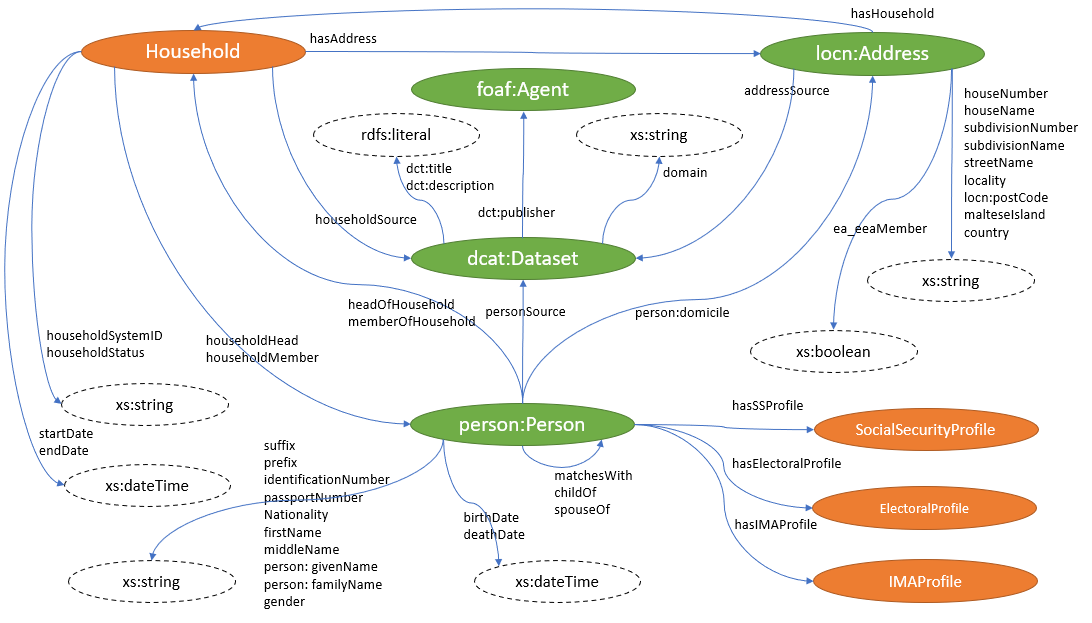A Holistic view of Household Units in Malta
The goal of the Malta pilot within the inGOV project is to implement a Digital Common Household Unit Integrated Public Service (IPS) that shall be used to identify unique household units, which are currently relevant to the provision of a number of public services.
The goal of the Malta pilot within the inGOV project is to implement a Digital Common Household Unit Integrated Public Service (IPS) that shall be used to identify unique household units, which are currently relevant to the provision of a number of public services. This requires an approach that mitigates challenges arising from the existing data silos, including non-interoperable schemas and inaccuracies in the data. Towards this aim, knowledge graphs are being leveraged to give semantic meaning to the often-disconnected values in relational databases, using the Household Ontology as the base interoperable model. This enables the data to be integrated, thus providing a holistic view of household units in Malta.

The above figure shows the Household ontology. In order to encourage interoperability, it extends and re-uses existing vocabularies and ontologies (shown in green) such as the Person, Location, DCAT, and FOAF data models. There are three core concepts in the Household Ontology. The Person concept provides person identity information on the person who is part of a household unit. The Household concept represents information on a household unit. The latter can have multiple definitions based on the domain at hand, for example two common definitions of household are a residence-based household, where a household is an address where one or more people reside, and another is a familial-based household, where a household represents one or more people having a familial relationship (e.g. married couple, siblings, etc.). The third core concept is the Address, which provides location information for the two other core concepts. The other concepts provide provenance information (Agent and Dataset concepts), whilst the profiles represent domain specific data from the on the persons (SocialSecurityProfile, ElectoralProfile, and IMAProfile).
The semantic uplifting of data and mapping to the Household Ontology provides a number of benefits across multiple use cases spanning multiple domains within Government. These were discussed in focus groups held with the stakeholders participating in the Malta pilot. Following are a few key examples:
- Data quality improvement – the integration of data from different domains and data sources will enable the identification of any discrepancies;
- Holistic view – the integrated data will allow for an overarching view of household units in Malta, catering for the different definitions as used across Government; and
- Data-driven public services – the additional insight obtained through the holistic view will enable public services to be provided more efficiently and effectively.


